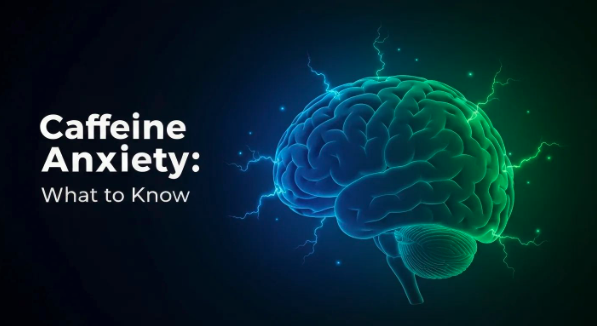The Importance of Mental Health Awareness
Discover the importance of mental health awareness and how it impacts us all. Break the stigma now!

Understanding Mental Health Awareness
To comprehend the significance of mental health awareness, it is essential to recognize the importance it holds in society and the impact of stigma on mental health.
Importance of Mental Health Awareness
Mental health awareness plays a crucial role in enabling individuals to recognize signs of anxiety, depression, and other conditions affecting mental well-being. By promoting mental health awareness, individuals can cultivate a sense of self-realization about their mental health, empowering them to seek help and support when needed.
Mental health is a vital aspect at every stage of life, from childhood through adulthood. It influences how individuals think, feel, act, handle stress, relate to others, and make healthy choices. More than 50% of individuals in the United States are likely to experience a mental health condition at some point in their lives, emphasizing the commonality of mental illnesses as a significant health concern [1].
Impact of Stigma on Mental Health
Stigma associated with mental health conditions and substance use can act as a barrier, preventing individuals from seeking the necessary treatment to lead fulfilling and productive lives. Addressing and reducing stigma in society is crucial to ensuring that individuals feel comfortable and supported in seeking help for their mental health needs [3].
It is important to understand that mental health struggles are not simply a matter of willpower but a complex interplay of biological, psychological, and environmental factors. Often, addressing mental health concerns requires professional intervention, therapy, and a supportive environment [4].
By enhancing mental health awareness and combating stigma, individuals can foster a more supportive and understanding community that promotes mental well-being and encourages individuals to prioritize their mental health needs.
Mental Health Awareness Month
Mental Health Awareness Month, first recognized in 1949 and celebrated in May, holds significant history and significance. This dedicated month seeks to educate the public about mental illness, raise awareness about research and treatments, reduce stigma, and celebrate recovery from mental illness.
History and Significance
The observance of Mental Health Awareness Month serves as a platform to help people recognize the impact of mental illness on their lives. By educating individuals about available services and advocating for mental health, even for those without a mental illness, this month fosters open conversations about mental health. These dialogues play a crucial role in reducing misconceptions and stigma, ultimately encouraging those in need to seek help and find the necessary support networks.
Objectives and Activities
Mental Health Awareness Month offers a range of objectives and activities aimed at promoting mental health awareness and support. Individuals and organizations can participate in fundraising, community outreach, and awareness events during this month to contribute to the cause. National organizations such as Mental Health America (MHA), National Alliance on Mental Illness (NAMI), and the National Institute of Mental Health organize various events and fundraisers to support research, fund treatment options, and connect advocates to improve mental health care.
To actively raise awareness for mental health, individuals can engage in initiatives like fundraising campaigns, community outreach programs, and awareness events during Mental Health Awareness Month. Events such as NAMIWalks and campaigns like Tools 2 Thrive, organized by National organizations like MHA and NAMI, are designed to educate people on mental health conditions and provide tools for enhancing mental well-being.
By actively participating in these activities and promoting awareness, individuals can contribute to the ongoing efforts to destigmatize mental health issues, facilitate access to resources, and create a more supportive environment for those affected by mental health conditions.
Prevalence of Mental Health Conditions
When examining the prevalence of mental health conditions, it becomes evident that these issues are pervasive and impact a significant portion of the population. Understanding the statistics related to mental health conditions in the US and gaining a global perspective is crucial for raising mental health awareness.
Statistics in the US
In the United States, mental health conditions affect a substantial number of individuals. Nearly one in five adults in the US has a mental health condition, highlighting the prevalence and importance of mental health awareness for everyone, including family, friends, and caregivers of those affected. More than 50% of individuals in the US are likely to experience a mental health condition at some point in their lives, underscoring the commonality of mental illnesses as a health issue.
The statistics in the US alone are staggering, with about 1 in every 5 adults living with a mental illness. These numbers emphasize the significant impact of mental health conditions on the population and the pressing need for increased awareness and support.
Global Perspective
On a global scale, mental health conditions affect a substantial portion of the population. According to the World Health Organization (WHO), mental disorders, also known as mental health conditions, impact one in eight individuals worldwide. Increasing mental health awareness is crucial in helping society better understand emotional suffering and mental illness and in eliminating stigmas associated with these conditions.
Mental illnesses are among the most common health conditions globally, further emphasizing the prevalence and significance of mental health issues across borders. By gaining a global perspective on mental health conditions, it becomes clear that these issues are universal and require collective efforts to raise awareness, provide support, and combat stigmas.
Understanding the prevalence of mental health conditions both in the US and on a global scale is essential for promoting mental health awareness and fostering a supportive environment for individuals facing these challenges. By acknowledging the widespread impact of mental health conditions, we can work towards creating a more inclusive and compassionate society that prioritizes mental well-being.
Promoting Mental Health Awareness
When it comes to the importance of mental health awareness, promoting understanding and acceptance of mental health issues is crucial for fostering a supportive and inclusive society. This section explores effective strategies to raise awareness and the significance of community engagement in this vital cause.
Strategies to Raise Awareness
Raising awareness about mental health involves educating the public, challenging misconceptions, and encouraging open conversations about mental well-being. National organizations like Mental Health America (MHA) and the National Alliance on Mental Illness (NAMI) play a pivotal role in organizing events and campaigns to educate individuals on mental health conditions and provide tools for improving mental health.
One effective strategy is to share accurate information, personal stories, and messages of support related to mental health through various platforms, including social media. By spreading awareness and breaking the silence surrounding mental health, individuals can contribute to a more informed and empathetic society where mental health is prioritized and support is readily available.
Community Engagement
Engaging with the community through local events, workshops, or support groups dedicated to mental well-being is a powerful way to break the stigma surrounding mental health and foster an environment of acceptance and understanding [6]. By coming together to discuss mental health openly and support one another, individuals can create a safe space where those facing mental health challenges feel heard and valued.
Supporting friends and family members who may be struggling with mental health is another essential aspect of community engagement. By actively listening, offering empathy, and encouraging them to seek professional help, individuals can make a significant difference in their journey toward healing. Community support plays a critical role in breaking down barriers to mental health care and creating a more compassionate society that prioritizes mental well-being.
By implementing these strategies and actively engaging with the community, individuals can play a vital role in promoting mental health awareness and creating a culture of openness, acceptance, and support for all individuals facing mental health challenges. Together, we can work towards building a society where mental health is destigmatized, and resources for mental well-being are readily accessible to all.
Breaking the Stigma
In the mission to combat the stigma surrounding mental illness, various strategies have been identified as crucial components. Among these, education and advocacy, along with legislative reforms, play a pivotal role in reshaping societal perceptions and fostering a more supportive environment for individuals dealing with mental health challenges.
Education and Advocacy
Raising mental health awareness is a fundamental step in breaking down stigmas associated with mental health conditions. Through education initiatives, targeting misinformation and promoting understanding among the general population, particularly focusing on school students and employers, the barriers to seeking help and support are gradually dismantled.
Advocacy efforts by influential figures and groups also play a significant role in leading de-stigmatization endeavors. Governmental organizations, grassroots leaders, and public figures have the power to drive policy changes and create a more inclusive environment for those affected by mental health conditions. By speaking out and advocating for change, these entities can help reshape societal attitudes and promote acceptance and support for individuals facing mental health challenges [7].
Legislative Reforms
Legislative reform stands out as a critical strategy in the fight against mental health stigma. Proposals to remove mental illness declarations on job application forms and implement policies that encourage employers to hire and support individuals with mental health conditions in the workplace have been put forth. These reforms aim to eliminate discriminatory practices and promote equal opportunities for individuals with mental health challenges. By enacting laws that protect the rights and well-being of those struggling with mental illness, society can take significant strides towards creating a more inclusive and supportive environment for all individuals [7].
Breaking the stigma surrounding mental health requires a collective effort from individuals, communities, and policymakers. By emphasizing education, advocacy, and legislative reforms, we can work towards creating a society where mental health is understood, accepted, and supported. Together, we can foster a culture of empathy, compassion, and inclusivity, ensuring that everyone has the opportunity to seek help and live a fulfilling life, free from judgment and stigma.
WHO's Role in Mental Health Promotion
The World Health Organization (WHO) plays a pivotal role in advancing mental health promotion on a global scale. Through various initiatives and campaigns, WHO aims to raise awareness, advocate for policy changes, and promote mental health literacy among the general public. In this section, we will delve into WHO's advocacy campaigns and strategies for mental health promotion.
Advocacy Campaigns
WHO leads high-profile advocacy campaigns to mobilize partners and resources, raising awareness among decision-makers and the general public about the importance of mental health. These campaigns include annual advocacy days focusing on mental health, suicide prevention, dementia, and other specialized initiatives. By highlighting the significance of mental health awareness at various levels of society, WHO strives to destigmatize mental health conditions and promote a culture of understanding and support [8].
Strategies for Mental Health Promotion
Mental health promotion interventions are crucial for enhancing overall wellbeing and fostering a mentally healthy society. WHO emphasizes the delivery of these interventions in diverse settings where individuals live, work, learn, and thrive. This includes implementing school and workplace mental health programs, early childhood interventions, social support and community engagement initiatives, women empowerment projects, anti-discrimination programs, and other interventions addressing the social determinants of mental health.
These activities are interconnected with mental health services and involve collaboration across multiple sectors beyond healthcare, such as education, labor, social welfare, justice, and environment, to maximize their impact. By integrating mental health promotion strategies into various aspects of society, WHO aims to create a supportive environment that prioritizes mental wellbeing alongside physical health.
For further insights into the concepts and practices of mental health promotion, WHO's report "Promoting mental health: concepts, emerging evidence, practice" offers valuable information on the relationship between mental health and mental wellbeing. The report provides guidance on effective strategies and practices for promoting mental health effectively, particularly in the Western Pacific Region [8].
By championing advocacy campaigns and implementing comprehensive strategies for mental health promotion, WHO plays a crucial role in fostering a global environment that values mental health, promotes awareness, and advocates for the wellbeing of individuals with mental health conditions.
References
[1]: https://giveanhour.org/breaking-the-stigma-how-everyone-can-contribute-to-mental-health-awareness/
[3]: https://www.tn.gov/behavioral-health/stigma.html
[4]: https://stellishealth.com/promoting-mental-health-awareness-breaking-the-stigma/
[5]: https://www.lifespan.org/lifespan-living/importance-mental-health-awareness-month
[6]: https://stellishealth.com/promoting-mental-health-awareness-breaking-the-stigma
[7]: https://www.ncbi.nlm.nih.gov/pmc/articles/PMC8835394/
[8]: https://www.who.int/westernpacific/activities/promoting-mental-health
More Resources
A team ready to start your journey.
Get in touch — today.
We are a safe space – a haven for exceptional individuals to receive discreet, personalized, in-person treatment and care.
.avif)



.webp)






